By Shammara Lawrence
Before leading the Selma to Montgomery marches or delivering his notable “I Have a Dream” speech at the March on Washington for Jobs and Freedom in 1963, Martin Luther King Jr. was walking the halls of the prestigious Morehouse at the mere age of 15.
Based in Atlanta, Georgia, Morehouse is the only historically Black college for men in the United States. As such, the university has a rich legacy of educating and inspiring generations of thought leaders who have gone to change the world in incalculable ways, including Dr. King, who graduated in 1948 with his bachelor’s degree in sociology (and before him, his father and grandfather). Other notable graduates include filmmaker Spike Lee, Senator Raphael Warnock, and actor Samuel L. Jackson.
A formative time in his life, his Morehouse years equipped King with the knowledge and character to go on to be a renowned civil and human rights leader, radical thinker, and one of the greatest orators and political strategists in American history. In fact, the sociology department chair at the time, Dr. Walter P. Chivers, introduced the young King to the pressing issue of segregation in America.
In honor of Martin Luther King Jr. Day, MTV News spoke to four esteemed Morehouse students who are achieving great intellectual heights, while also doing impactful work on campus and within their community. While they may vary in their academic interests and career aspirations, they all share a common appreciation for Morehouse, its tight-knit community, and the university’s history of educating and nurturing changemakers like King.
 Courtesy of George Pratt
Courtesy of George PrattGeorge Pratt is a junior (‘23) at Morehouse who majors in history and religion. An accomplished scholar, Pratt is a part of several student groups on campus, including the Student Government Association. He’s the historian-in-residence for the Department of Student Life and executive director of HouseCorps. Additionally, Pratt is a Thurman Honors Scholar and UNCF Mellon Mays Fellow. He is pursuing a career in academia.
On choosing to attend Morehouse:
“I come from a family in which it is tradition to attend an HBCU for an undergraduate experience. So, from a young age, I always knew I was going to an HBCU and I identified Morehouse as the HBCU of my choice. Morehouse was my dream school for as long as I could remember, simply because I could identify Black leaders that attended the school. As I grew older, I realized that Morehouse was that space that could provide the necessary incubation for me as an intellectual and a thought leader.”
On spearheading a student initiative called HouseCorps:
“I would say my biggest accomplishment at Morehouse was being able to have the opportunity to create my own student initiative called HouseCorps. We are dedicated to preserving the social and cultural history of Morehouse through oral history and the digital humanities. We have a model of telling the stories that are rarely told, and it is through a social justice lens and an anti-racist framework that we craft programming through multimedia projects. One of the projects that we’re doing now, which is called ‘Project Visibility,’ centers Morehouse students who identify as trans, nonbinary, genderqueer, [and anyone] who identifies outside of the heteronormative expressions of a man.”
On how Martin Luther’s King Jr.’s legacy has inspired him:
“He was a well-rounded scholar-practitioner. In his book, Where Do We Go From Here, he talks about building the beloved community. King really attempted to actualize what Dr. Lawrence Edward Carter, the dean of Morehouse, called the ideal cosmic community in which everyone is affirmed and valued. In the ways that I lead and construct communities, it’s that radical love and a sense of justice because that’s at the root of Dr. King’s activism, his scholarship, and his preaching. That encapsulates the idea of social justice being a spiritual discipline. That is a way in which I try to model Dr. King.”
 Jennifer Stephens
Jennifer StephensJustin Upshaw is a junior at Morehouse (‘23) studying Cinema-Television and Emerging Media Studies. He is president of the Morehouse Filmmakers Association and producer of Morehouse College’s The Maroon Tiger art and entertainment division. A lover of action and horror films and thrillers, he gravitates toward those genres when creating stories of his own.
On how the Morehouse community inspires him:
“The Morehouse community has inspired me to go for what I want, honestly. A lot of the older brothers that I’ve met, they’ve pushed me to greater heights. They’ve also helped me to understand the beauty of cinema. I don’t really think I fully got that before I came to Morehouse, but meeting a lot of my brothers who love cinema helped me to love film more and be more focused than ever.”
On the benefits of attending an HBCU like Morehouse:
“One thing that I’ve seen in HBCUs is the support that I’ve received from teachers and how close I’ve been able to get with a lot of them. I think that’s been one of the benefits of going to an HBCU. Plus, the class sizes are smaller. The other thing is learning more about Blackness in itself and getting a deeper understanding of what it is. I came from a town called Sterling in Northern Virginia where the Black population wasn’t that large, so meeting all different kinds of Black people in a short amount of time has been really eye-opening.”
On how Martin Luther’s King Jr.’s legacy has inspired him:
“He’s inspired me to be great in whatever I choose to do. I know that, personally, I really want to be considered a great director by the end of my time. But even if I choose to go and do something else, I still want to be considered great in that aspect. And I think just being great overall is about having stellar control over your craft, but also helping people along the way.”
 Daquan Spratley
Daquan SpratleyA senior at Morehouse (‘22), Chase Stokes is set to graduate in May. Growing up, Stokes was a theater kid who loved to act and perform. He loves movies and storytelling, which led him to major in Cinema-Television and Emerging Media Studies. He views film and TV as apt ways to preserve history.
On being a Bonner Scholar and getting involved in his community:
“The Corella and Bertram F. Bonner scholarship program focuses on community service. Each scholar is given a service site, and we commit to 420 community service hours each year, and our issue-based focuses include things like education, food insecurity, and housing. My freshman year, I served as a teacher’s aide at a school called Slam Academy in Atlanta. That really opened my eyes to the issues that are in education. I mean, I came from public school as well, but I think when you’re in it, or when you’re a child, you’re not really privy to the issues that are going on, so when you get into higher education, there’s a better understanding. I wouldn’t really call myself an activist but just as a servant leader, and being an honor scholar really gave me a different lens and a great opportunity to really impact the community.”
On his career plans post-graduation:
“I would love to work within film and television production. My goal is to create my own company for film production management because Atlanta is such a hub and I know the city. I want people to come out here and, if they need somebody to manage their production, to think of me like, ‘We know this person is going to handle our business.’”
On how Martin Luther’s King Jr.’s legacy has inspired him:
“I think the legacy of Dr. King is something that’s so important. I think it’s something that draws people to Morehouse as a home. For me, coming to Morehouse and just getting a better understanding of his legacy reminded me that he did not pass that far ago. Like when I do the math, I realized Dr. King died when my grandmother was, like, 1, which wasn’t that long ago. So, it pushes me to be more of a servant leader. It pushes me to be altruistic and think about what I can do for others, with the privilege that I have. In everything I do, I think, ‘How is this going to impact those around me?’”
 Jason Spencer
Jason SpencerA junior at Morehouse (‘23), Henry McCants majors in Cinema-Television and Emerging Media Studies. He is an Oprah Winfrey Endowed Scholar and Bonner Scholar. Through the Bonner Scholars program, McCants has taken part in numerous community service events. A videographer with a deep love of storytelling, he hopes to someday work on the production or story development side of film and TV.
On what sets HBCUs like Morehouse apart from other universities:
“Definitely their focus on cultivating Black students. I think HBCUs take the time to work with their students and create a space with ample resources and a multitude of opportunities, so when they leave the school, they can go on to do great things.”
On his community service work:
“Right now, I’m a videographer, so I create the video content for not just the Bonner program, but any of the other programs or events that fall under the Bonner Office of Community Service, as well as the athletics department. The Bonner Office does a multitude of events throughout the semester. We did a Haiti relief drive early last semester. We also have a day of service on Martin Luther King Jr. Day. We get together and do a community service event, which is always great. In addition to that, I’m an Oprah Winfrey scholar and I have worked with students at Booker T. Washington High School and Brown Middle School to help tutor and mentor the students there.”
On how Martin Luther’s King Jr.’s legacy has inspired him:
“Dr. King’s moral philosophy, devotion to important causes, and helping other people are things that inspire me every day. Just doing something greater than yourself, which is what he stood for. That’s something I try to incorporate into my life.”


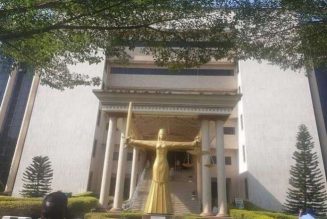

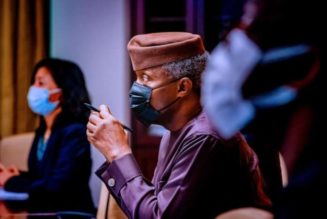


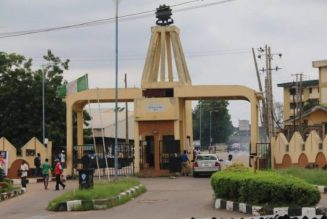
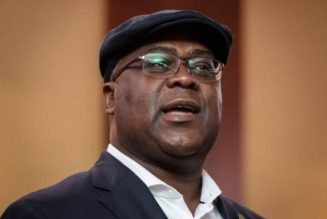
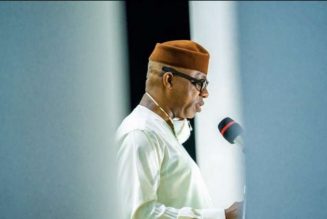

Tagged: Issues